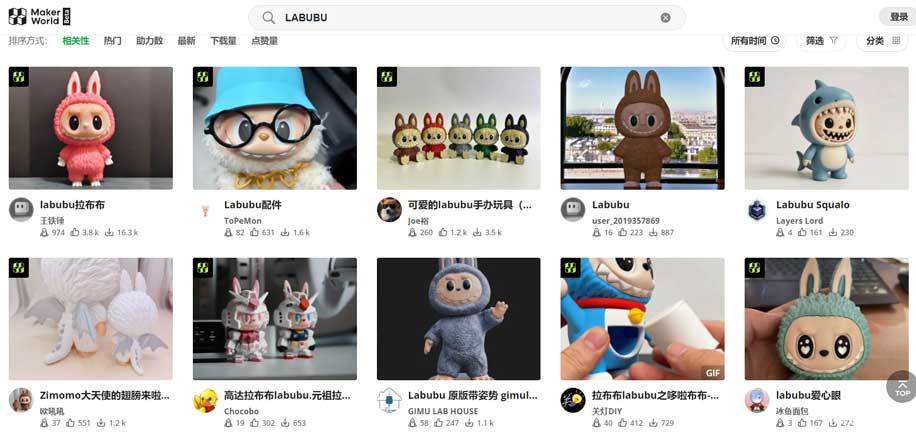Recent Court Ruling Signals Stronger Copyright Protection for Designer Toys in the Age of 3D Printing
In a landmark copyright case, a Chinese court recently ruled in favor of Pop Mart, the company behind the wildly popular “Labubu” designer toy, awarding RMB 10,000 (approximately USD 1,380) in damages after a defendant was found selling 3D printed replicas of Labubu without authorization. The defendant failed to appear in court, and although Pop Mart could not prove actual economic losses, the court determined infringement of distribution and online dissemination rights had clearly occurred.
The case, filed in December 2024, marks a critical moment in Pop Mart’s increasingly global intellectual property enforcement efforts. Known as the “Toothed Elf,” Labubu has reached cult status among collectors across Asia, Europe, and North America. Prices in secondary markets have soared beyond USD 200 per figure, fueling both fervent fandom and a shadow economy of 3D printed counterfeits.

The Rise of Unofficial Labubu 3D Models
With platforms like MakerWorld, Cults3D, and Creality Cloud hosting hundreds of Labubu-inspired 3D model files, enthusiasts can recreate figures using inexpensive desktop 3D printers. The production cost? As little as USD 0.50 per figure using PLA filament, making the profit margin for counterfeiters extremely high.
While some users download and print for personal use—a legally ambiguous gray zone—others have moved into commercial resale. In one reported case, an individual earned over USD 15,000 by selling unauthorized Labubu prints online. As enforcement tightens, many community members fear the platforms hosting these files may soon face takedown orders or legal notices.

Why Copyright Matters in the 3D Printing Era
Labubu’s case is more than a skirmish over toys—it underscores the growing complexity of copyright in the era of digital fabrication. Designer toys often involve multiple layers of IP protection: artistic copyright, industrial design patents, and registered trademarks. When 3D printing enters the mix, traditional legal boundaries begin to blur.
Obtaining a digital model file for a character like Labubu—whether through reverse engineering, leaks, or AI recreation—can instantly enable reproduction of physical products. The moment such files are shared or sold, even without printing, copyright infringement may already be taking place under the reproduction right. Distribution or sale of printed versions escalates this to direct violation of dissemination rights.
In this case, the court emphasized that unauthorized reproduction and online sharing of Pop Mart’s copyrighted design—whether physical or digital—constitutes infringement regardless of the infringer’s commercial scale or intent.
A Global IP Strategy
Pop Mart’s legal offensive is not limited to China. In late 2024, the company issued cease-and-desist notices in Singapore and Taiwan, targeting businesses and influencers using Labubu’s likeness without authorization. Brands like Playmade (bubble tea) and local fashion shops halted Labubu-themed campaigns following legal warnings.
In China, Pop Mart’s strategy has been bolstered by local enforcement. According to recent reports, the Yiwu market—once a hub for counterfeit toys—removed all fake Labubu figures overnight. Meanwhile, customs authorities in Shanghai seized nearly 6,000 unauthorized Pop Mart products from cross-border shipments.
Moving Forward: Balancing Creativity and Compliance
This legal precedent reflects a deeper shift in how we define intellectual property in the digital age. 3D printing challenges the assumption that physical products are harder to copy than digital files. In truth, “the file is the product”—a reality that threatens to erode creative industries if left unchecked.
The Labubu case is a wake-up call for makers, creators, and platform operators. While the spirit of open-source sharing has fueled innovation in 3D printing, respect for original IP must evolve alongside it. Platforms need clearer policies; creators must understand legal limits; and rights holders must enforce boundaries transparently and fairly.
Pop Mart’s move signals a new era in designer toy protection—and a broader conversation on how copyright law must adapt to the tools of digital manufacturing.